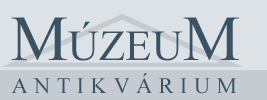kategóriák
- Közlekedés ajánlójegyzék
- Szocreál ajánlójegyzék
- Reklám ajánlójegyzék
- Fotó ajánlójegyzék
- Kínai-japán ajánlójegyzék
- Szentkép ajánlójegyzék
Új árakkal! - Új szentkép ajánlójegyzék II.
- 12 érdekes régiség
 Könyv
Könyv
 Bibliofilia
Bibliofilia
 Régiség
Régiség
 Metszet
Metszet
 Térkép
Térkép
 Fotó
Fotó
 Papírrégiség, Aprónyomtatvány
Papírrégiség, Aprónyomtatvány
 Plakát
Plakát
- Cirkusz
- Modern grafika
- Szocreál
- NER Irodalom
- Egyéb
kosár
üres a kosár
nincs bejelentkezve
Ellis, Bret Easton : Lunar Park
- leírás
- további adatok
Bret Easton Ellis's new novel is a curiosity, but not quite a failure. It's a postmodern ghost story about a writer haunted by his own past and his own literary creations. Stephen King has turned out a few books on this theme, but the real precedents are cinematic. Wes Craven's New Nightmare from 1994 - in which the filmmakers and actors who made A Nightmare on Elm Street become targets of the bogeyman from that film - probably comes closest.
The narrator of Lunar Park is called Bret Easton Ellis. This takes getting used to, and makes reviewing tricky. I'll use initials for the character, reserving his full name for the author. BEE has written Ellis's books, and quotes from them. His literary colleagues, many of them celebrated in their own right, correspond to real figures: the friendly rival Jay McInerney, the agent (Binky Urban), the editor (Gary Fisketjon).
Postmodernism, though antagonistic to subjectivity, is very much a subjective taste. Either your heart leaps when you read, in a book published in the States by Knopf, 'Knopf was going to call it [BEE's planned novel Teenage Pussy] "a pornographic thriller" in their catalogue, which excited me immensely, and told me privately that Alfred and Blanche Knopf would be rolling over in their graves when the thing was published', or it sinks. There's not a lot of middle ground.
The dovetailing of fact and invention in BEE's private life will be harder for most readers to detect. He's a mess even before the Halloween party at which supernatural elements begin to enter the picture. He is married to a film star, Jayne Dennis, and lives with her and her two children in a suburban mansion.
The marriage is three months old and fragile (BEE is in therapy, solo, and they are trying counselling as a couple), but Jayne's 11-year-old son, Robby, is biologically his from an earlier episode. Sarah, six, Jayne's daughter by another man, calls BEE 'Daddy', while Robby, untrusting and resentful, addresses him as 'Bret'. BEE's attitude to family is a strange cocktail of poison and forlorn hope. He goes through the motions of fatherhood, but he is also falling off the wagon of sobriety and abstinence from drugs - actually, not so much falling as hurling himself. He is trying to have an affair with a student at the college where he teaches. She is writing her thesis on his work. He admires her taste.
Much of the appeal for writers of the hall-of-mirrors routine is its essential safety. Any confession can be made without consequences. Ellis cheerfully blackens himself in the character of BEE, knowing that the evidence can't be used against him. He can ridicule a BBC interview in which, rampantly drugged, he gave a flippant reply to a question about his sexuality (Brits really don't get irony), so that he was assumed thereafter to be gay. And then he can end Lunar Park with BEE living as part of a male couple. He can present himself as the abused child of a hateful father, without sharing the credit for his flip nihilism and nasty drollery.
He can write what seems quite close to an apology for his most notorious book, American Psycho, knowing that readers can't legitimately take the information out of another novel: 'I had moved past the casual carnage that was so prevalent in the books I'd conceived in my twenties, past the severed heads and the soup made of blood and the woman vaginally penetrated with her own rib. Exploring that kind of violence had been "interesting" and "exciting" and it was all "metaphorical" anyway - at least to me at that moment in my life, when I was young and pissed off and had not yet grasped my own mortality, a time when physical pain and real suffering held no meaning for me.' The confessional is always also a theatre.
It seems not to be a coincidence that Philip Roth started writing major novels, in the nineties, when he moved beyond his own hall-of-mirrors period. Lunar Park rewrites Ellis's past, but without risks.
The premise of the horror story underneath the borrowings from various films (the possessed toy from Child's Play, the traumatised house from Poltergeist, the visceral transformations from Alien, even a lighting effect from Cocteau's Beauty and the Beast), is that BEE's past, which he has failed to confront, comes back to claim him. He based Patrick Bateman, the murderer in American Psycho, on his father, and now they both haunt him, one from the grave, the other from the pages of a book.
One of the book's two dedications is to 'Robert Martin Ellis (1941-1992)', but there's no telling whether this is a form of coming to terms with his father's memory, or one more slap in the dead man's face. The only redemptive trait the father is given is a maudlin obsession with the son. Perhaps having to share a dedication is a subtle slight all by itself.
What keeps the book going is mainly its fluency and polish, not its soul-mining but its professionalism. Every now and then BEE waxes satirical about suburbia, as part of a familiar rhetorical trade-off scheme for self-obsessed narrators, showing that he has an eye as well as an ego, and implying that he's only as nasty and futile as the America that made him. There's a theme of missing boys - who may simply have chosen to absent themselves - which threatens to become poignant. Late in the book the narrator fragments (or fragments further, if you consider narcissism a form of fragmentation in itself), into BEE and 'the writer', who produce different version of events.
Any reintegration is left to the very last pages. Then, as the father's ashes are scattered, Bret Easton Ellis produces two lyrical pages that have nothing in common - tonally, rhythmically - with the rest of book. Part of its impact on the reader is the literary equivalent of the bends, the shock to the system of ascending at speed from the depths of self-absorption, where only the 'I' can survive. It is certainly a prose poem of some beauty. Whether it's enough to transform the book is not so certain.
| állapot: |      |
| kategória: | Könyv > Idegennyelvű könyvek > Angol nyelvű > |
| kategória: | Könyv > Idegennyelvű könyvek > Angol nyelvű > Angol nyelvű irodalom > |
| kiadó: | Vintage, 2006 |
| cikkszám / ISBN: | 9780375727276 |
| kötés: | fűzve |
| oldalszám: | 399 |
| könyv nyelve: | angol |



























































 Telefon:
Telefon: E-mail:
E-mail:







